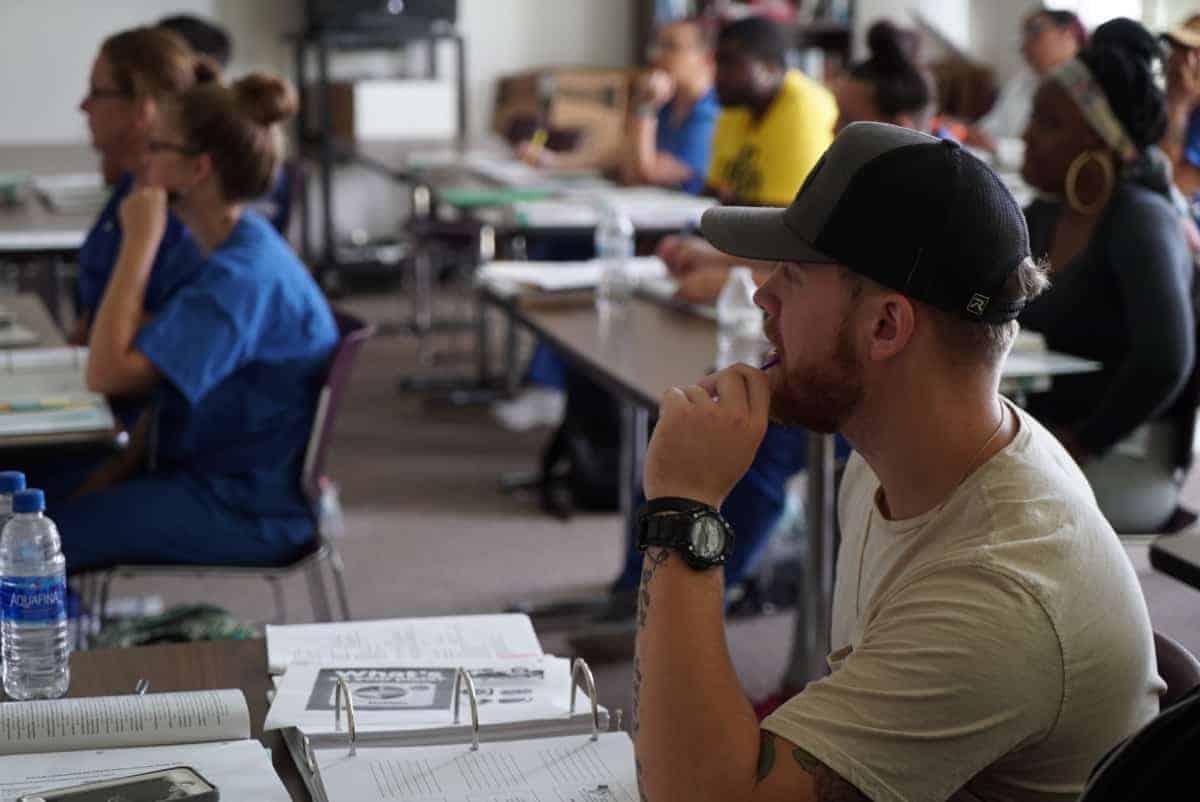Dallas Herring was a visionary education leader in North Carolina, and he is credited as a key figure in establishing the state’s community college system. Each year, NC State hosts a lecture in Herring’s honor focusing on a critical issue in community college education.
This year, guest speaker Sanford “Sandy” Shugart will speak about student transfers from community colleges to four-year institutions and the importance of their success to the economy, to the democratizing value of education, and to the promise of higher education.
Shugart has deep ties to North Carolina, having served as the North Carolina Community College System’s vice president and chief academic officer. He also earned his Ph.D at the University of North Carolina at Chapel Hill.
Shugart, the current president at Valencia College in greater Orlando, Florida, will say that the entire pathway for transfer students needs to be considered in designing a better system, according to a draft of the lecture notes Shugart will use tomorrow.
North Carolina sits well below the national average of students who transfer from community colleges to four-year institutions, according to a policy brief on statewide transfers. However, North Carolina is much closer to the national average for the rate of students who earn a bachelor’s degree within six years of transferring.
The national rate, however, is poor. National studies show that over 80% of students who start at a community college say they want to transfer to a four-year and earn a bachelor’s degree. Fifteen percent actually do so.
That, Shugart is expected to say, is a reason to redesign the transfer ecosystem.
North Carolina will need to improve how many students earn a degree at a community college and how many transfer to a university to earn a bachelor’s. The state’s myFutureNC goal aims to get 2 million North Carolinians a “high-quality postsecondary degree or credential” by 2030 to meet the state’s expected workforce demands.
Perhaps more important than developing the workforce, Shugart is expected to say, is recognizing that higher education and the economy have not offered social or economic mobility to people of color and to low-wealth communities.
Under Shugart’s guidance since 2000, Valencia won the Aspen Institute’s College Excellence Program in 2011. The Institute cited Valencia’s success with low-income students and students of color as a key factor in the school being dubbed the “best community college” in the nation.
Shugart will describe, in part, Valencia’s success in creating a transfer partnership with the University of Central Florida. The agreement offers guaranteed admission of any graduate with an associate degree to any local, participating college. Shugart calls that guarantee the “value proposition” for students, showing them a clear purpose toward earning an associate degree. To learn more about the transfer partnership, read our profile below.
Student success shouldn’t be territorial — Valencia, UCF paving the way in transfer partnership
By the nature of community colleges, improving the success rate of transfer students will disproportionately benefit groups underrepresented on university campuses. In North Carolina, approximately 31% of UNC System students are transfer students, and community colleges disproportionately enroll low-income students, older students, and students of color. Across all demographics, community college students are more likely to be first-generation college students.
Shugart will say that the inclusion of these students in the American Dream — by way of access to higher education guaranteed by community colleges — is essential to the flourishing of our society, according to his lecture notes.
The second half of Shugart’s lecture will outline the steps to creating a successful transfer system. Shugart has one advantage as a community college president in Florida — the state has a unified college system. North Carolina has separate systems for community colleges and four-year institutions.
When Shugart discusses the need to consider the entire student transfer pathway, that means different things in each state. Many UNC System schools and private schools are creating transfer pathways, for example, but those pathways are unique to each institution rather than comprehensive across the state.
Lisa Chapman, also the former senior vice president and chief academic officer of the North Carolina Community College System and Central Carolina Community College’s current president, will provide the response lecture. She will provide a North Carolina-specific focus on how the state’s transfer process can be improved.
Chapman will specifically address the state’s Comprehensive Articulation Agreement, which is a baseline statewide agreement between all community colleges and UNC System schools to manage transfers.
The agreement supported over 11,000 new transfer students last year, according to Chapman, but the system can still be improved. Transfer students are still required to plan “for too many uncertainties which can lead to inefficiencies in transfer,” Chapman wrote in an emailed statement.
The Comprehensive Articulation Agreement has the most protections for students who earn an associate degree in arts or science before transferring. Students who earn a workforce-focused degree, the Associate in Applied Science, have fewer guarantees protecting their credits when they transfer. Yet, as Chapman is expected to discuss, these students are transferring to universities at ever-increasing rates.
“We can do better,” Chapman is expected to say. “And we will.”



